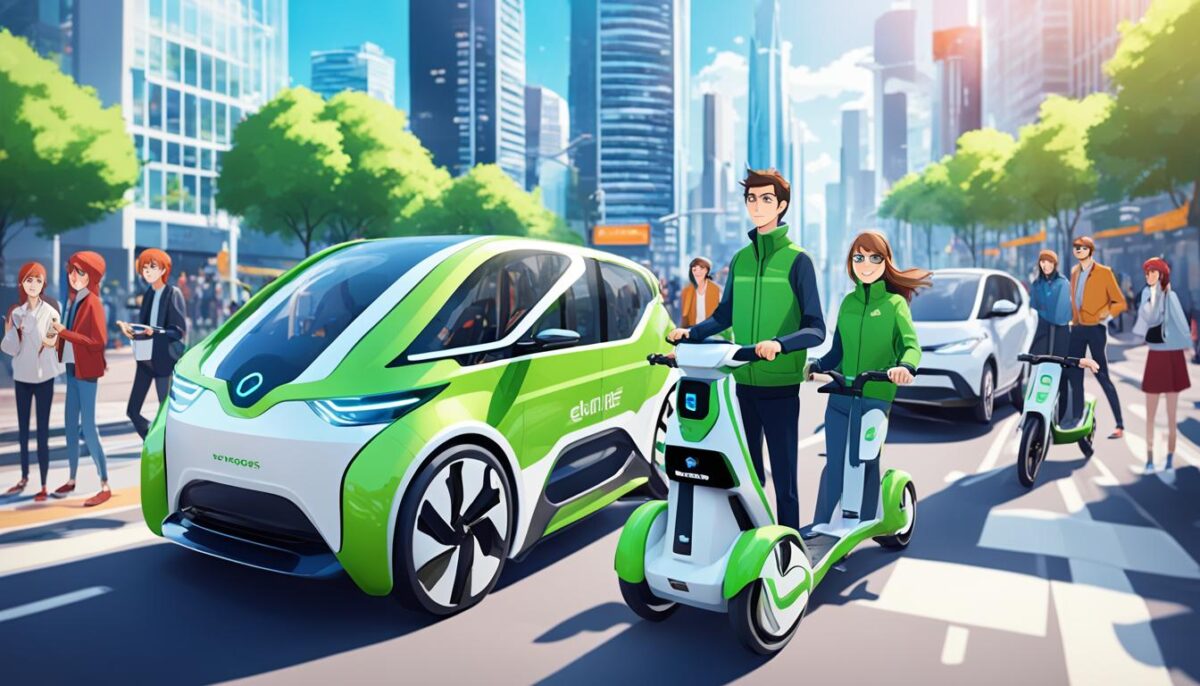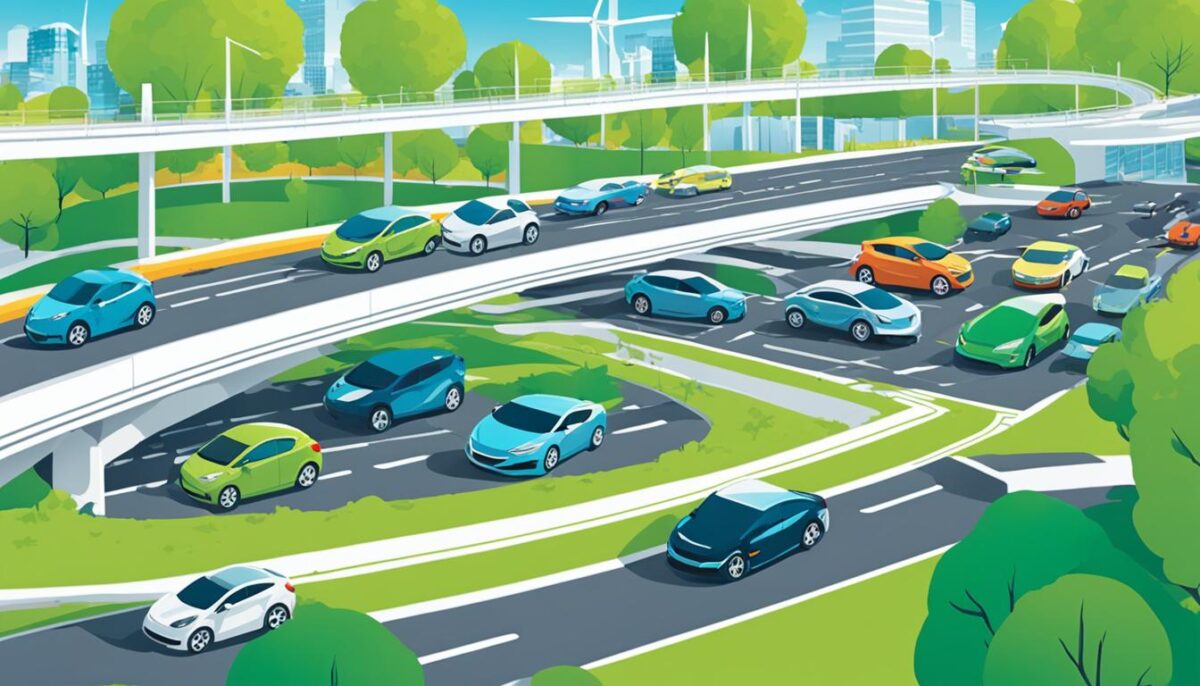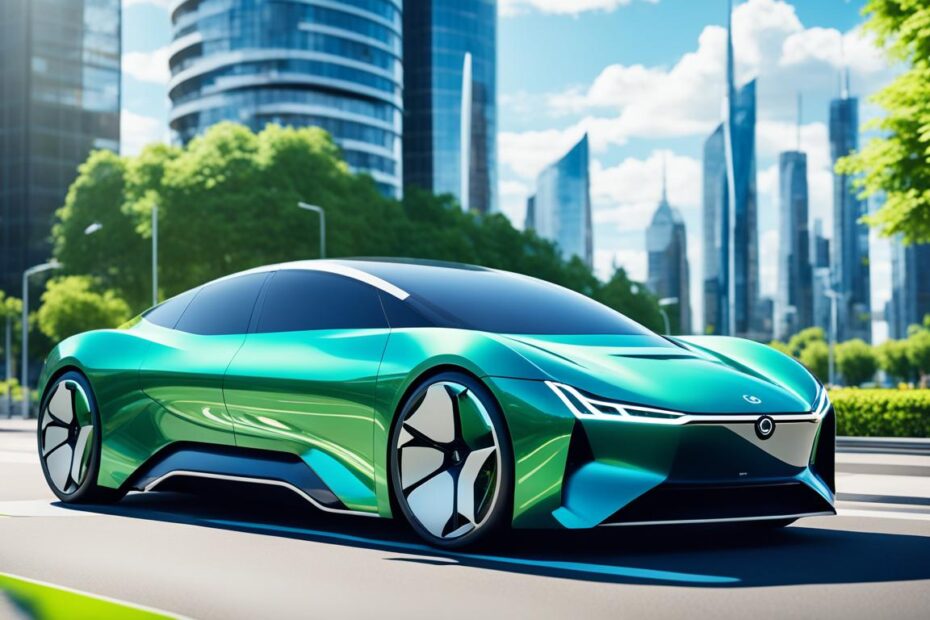As we approach 2024, I can’t help but feel excited about the transformative automotive trends that are reshaping the industry. The rapid pace of 2024 automotive advancements is influenced by a blend of technology, sustainability, and evolving consumer preferences. In this section, I’ll explore how these automotive trends not only push manufacturers to innovate but also change the way I drive and interact with my vehicle. From the rise of electric vehicles to advances in vehicle technology and safety measures, each trend reveals a glimpse into the auto industry innovations that await us.
The Rise of Electric Vehicles in 2024
The automotive landscape is undergoing a significant transformation as electric vehicles become increasingly popular in 2024. This surge in interest can be attributed to various factors, including advancements in technology and a growing awareness of sustainability in automotive practices. The transition to electric vehicles is not just about changing how we drive; it represents a broader commitment to environmentally friendly transportation.
Benefits of Going Electric
Many drivers are recognizing the numerous EV benefits that come with switching to electric vehicles. Here are some key advantages:
- Reduced carbon footprints contribute positively to the environment.
- Lower fuel costs provide substantial savings over time.
- Government incentives encourage and support the adoption of electric vehicles.
- Advancements in battery technology lead to longer driving ranges and shorter charging times.
Popular Electric Vehicle Models to Watch
As I explore the electric vehicle models 2024 has to offer, several standout options are capturing attention. Each of these models showcases unique features designed to appeal to a variety of consumers:
| Model | Manufacturer | Range (miles) | Charging Time (30% to 80%) | Starting Price (USD) |
|---|---|---|---|---|
| Tesla Model Y | Tesla | 326 | 30 minutes | 47,490 |
| Rivian R1T | Rivian | 314 | 45 minutes | 73,000 |
| Ford Mustang Mach-E | Ford | 312 | 38 minutes | 44,995 |
These electric vehicle models epitomize the shift towards sustainable solutions in the automotive industry. Each one not only meets the demands of today’s drivers but also helps pave the way for a cleaner future.

Automotive Trends Shaping Consumer Preferences
As I explore the current automotive landscape, a notable shift in consumer preferences emerges. Many buyers are choosing vehicles that not only satisfy their transportation needs but also align with their values, particularly regarding sustainability and technology.
The Shift Towards Sustainability
Sustainable automotive trends have taken center stage as consumers increasingly prioritize eco-friendly options. Automakers are responding to this demand by investing heavily in electric vehicles and hybrid alternatives. This underscores a transformation where consumers favor brands that demonstrate a commitment to environmental responsibility. Surveys indicate that many buyers consider the sustainability of vehicles a crucial factor when making purchasing decisions.
Tech-Savvy Buyers and Connected Cars
The rise of technology in vehicles is another significant trend shaping consumer preferences. Today’s tech-savvy buyers seek connected cars that offer advanced features. Innovations such as mobile app integration, real-time traffic updates, and sophisticated infotainment systems enhance the driving experience. As a result, manufacturers are adapting their offerings to meet these demands, creating vehicles that not only drive responsively but also integrate seamlessly with the digital lives of their owners.

| Feature | Importance to Consumers | Leading Brands |
|---|---|---|
| Electric Powertrains | High – Reduces carbon footprint | Tesla, Ford, Nissan |
| Infotainment Systems | Medium – Enhances connectivity | Apple CarPlay, Android Auto |
| Mobile App Integration | High – Provides real-time updates | BMW, Mercedes-Benz |
| Safety Features | Very High – Ensures driver confidence | Volvo, Subaru |
Automotive Trends: Autonomous Technology and Safety Innovations
The automotive landscape is rapidly evolving with significant advancements in autonomous technology and safety innovations. One of the most exciting developments is the progression towards Level 5 autonomy. This stage represents fully autonomous vehicles that require no human intervention whatsoever, hence redefining driving as we know it. Industry leaders like Waymo and Tesla are actively pushing the boundaries of what these vehicles can achieve, bringing us closer to a future where we can relax while the car handles the journey.
Understanding Level 5 Autonomy
Level 5 autonomy means the vehicle can navigate any environment and road condition completely on its own, eliminating the need for a driver. As I delve deeper into this topic, I recognize the potential for enhanced mobility for those unable to drive, while also aiming for a decrease in traffic accidents. This technology is no longer a distant dream; it’s becoming an imminent reality thanks to the relentless innovation occurring within companies dedicated to autonomous vehicles.
New Safety Features Revolutionizing the Industry
Alongside the rise of fully autonomous driving, new automotive safety innovations have become increasingly prevalent. Features like automatic emergency braking, lane-keeping assistance, and adaptive cruise control are now standards in many models, enhancing overall road safety. The implementation of these systems is crucial, as they actively work to prevent accidents, making the roads safer for everyone.
Impact of AI on Driving Safety
The integration of artificial intelligence in driving is another key aspect of this transformation. AI is being utilized to analyze vast quantities of data in real-time, significantly improving decision-making processes while driving. By reducing human error, we are witnessing a notable decline in accident rates, making the roads safer than ever before. As I explore these advancements, it becomes clear that the future of driving is not just about going autonomous; it’s about reimagining safety and technology in our everyday journeys.
